Far-right Protesters Clash With Police As UK Unrest Spreads

Far-right protesters clashed with British police during tense rallies Saturday as unrest linked to disinformation about a mass stabbing that killed three young girls spread across the UK.
The violence, which has seen scores of arrests across England and put Britain's Muslim community on edge, presents the biggest challenge yet of Labour Prime Minister Keir Starmer's month-old premiership.
It has also put hard-right agitators linked to football hooliganism in the spotlight at a time when anti-immigration elements are enjoying some electoral success in British politics.
Demonstrators threw chairs, flares and bricks at officers in the northwestern English city of Liverpool, while scuffles between police and protesters broke out in nearby Manchester.
Merseyside Police said "a number of officers have been injured as they deal with serious disorder" in Liverpool city centre.
The BBC reported that protesters smashed the windows of a hotel which has been used to house migrants in the northeastern city of Hull. Police said three officers had been injured and four people arrested.
In Belfast, Northern Ireland, fireworks were thrown amid tense exchanges between an anti-Islam group and an anti-racism rally.
Opposing groups of protesters also faced off in the central city of Nottingham and Bristol in the southwest.
The skirmishes marked the fourth day of unrest in several towns and cities following Monday's frenzied knife attack in Southport, near Liverpool on England's northwest coast.
They were fuelled by false rumours on social media about the background of British-born 17-year-old suspect Axel Rudakubana, charged with several counts of murder and attempted murder over the attack at a Taylor Swift-themed dance party.
Rudakubana is accused of killing Bebe King, six, Elsie Dot Stancombe, seven, and Alice Dasilva Aguiar, nine, and injuring another 10 people.
Starmer has accused "thugs" of "hijacking" the nation's grief to "sow hatred" and pledged that anyone carrying out violent acts would "face the full force of the law".
And reacting to Saturday's clashes, he said there was "no excuse" for the violence.
After talks with senior ministers he "reiterated that the government backs the police to take all necessary action to keep our streets safe", said a statement from his office.
The violence started late on Tuesday in Southport itself, where a mob threw bricks at a mosque. That prompted hundreds of Muslim places of worship across the country to step up security.
Police blamed supporters and associated organisations of the English Defence League, an anti-Islam organisation founded 15 years ago whose supporters have been linked to football hooliganism.
Unrest then rocked the northern cities of Hartlepool and Manchester as well as London 24 hours later, where 111 people were arrested outside Starmer's Downing Street residence.
On Friday, 10 people were arrested and four officers required hospital treatment following a riot in the northeastern English city of Sunderland in which at least one car was set on fire and a shop looted.
A mob also torched a police station and attacked a mosque.
"This was not a protest, this was unforgivable violence and disorder," Northumbria Police Chief Superintendent Mark Hall told reporters Saturday.
Anti-racism campaign group Hope Not Hate has identified more than 30 events planned for Saturday and Sunday.
Many of them were advertised on far-right social media channels as "enough is enough" anti-immigration rallies. Anti-fascism groups have staged numerous counter-protests.
In London, demonstrators attending a regular pro-Palestinian march appeared undeterred by a separate anti-immigration protest.
"My parents told me not to come today but I am from here. The UK is my home," 24-year-old student Meraaj Harun told AFP.
Starmer this week announced new measures that will allow the sharing of intelligence, wider deployment of facial-recognition technology and criminal behaviour orders to restrict troublemakers from travelling.
Labour politicians have accused Reform UK party leader Nigel Farage of stoking the trouble.
At last month's election, his anti-immigration Reform UK party captured 14 percent of the vote -- one of the largest vote shares for a far-right British party.
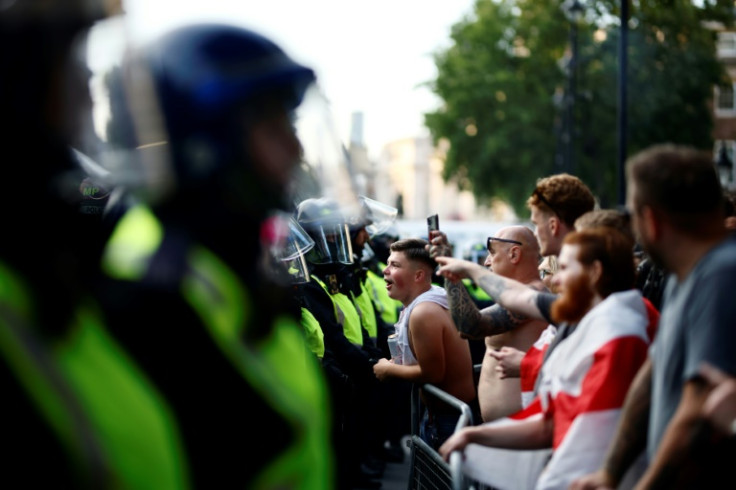
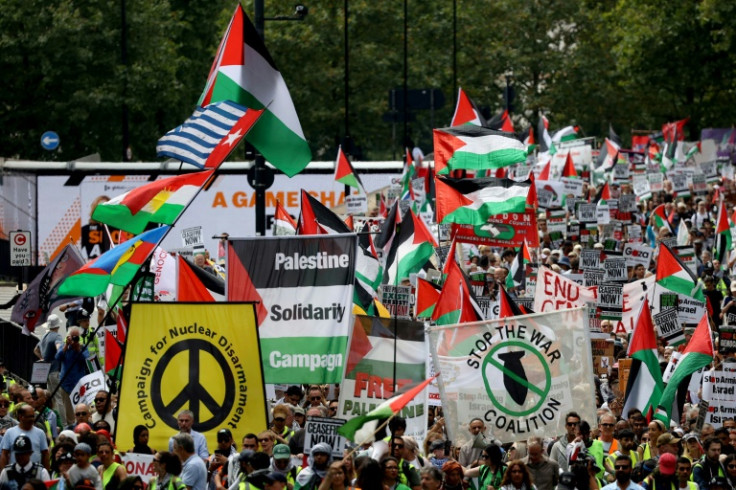
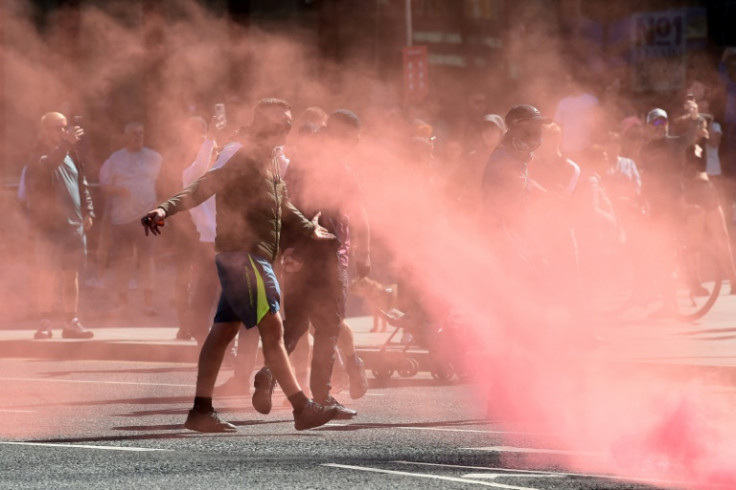
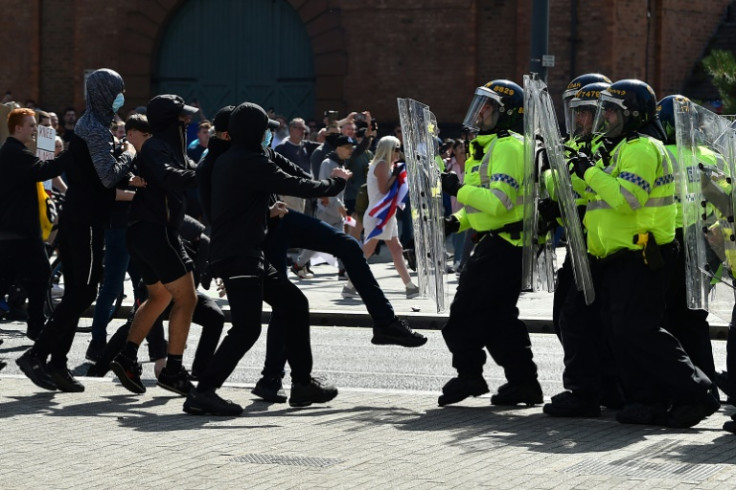
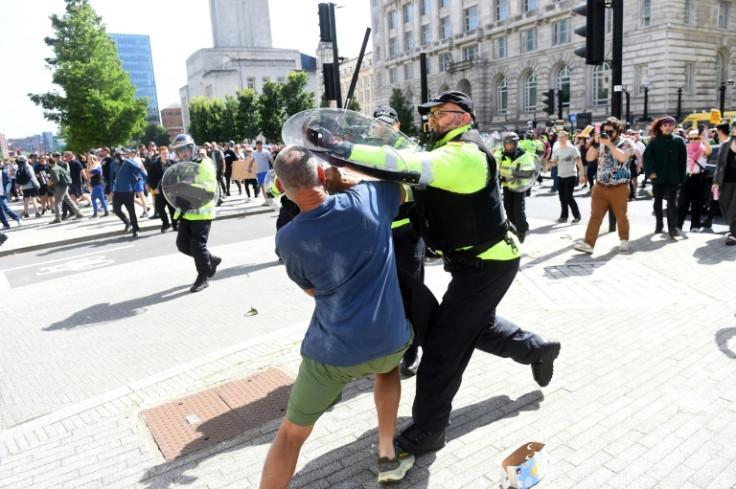
© Copyright AFP 2025. All rights reserved.





















